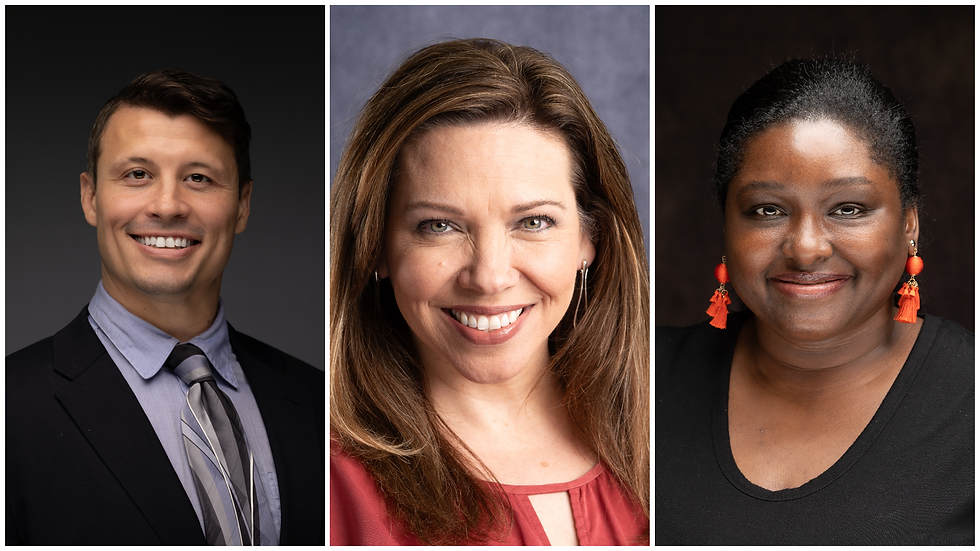The Fauxtographer
- Johnny Guerrero

- Sep 2, 2022
- 4 min read
Faux: not real or genuine : made to look like something else that is usually more valuable: imitation, fake faux leather/fur a string of faux pearls. Faux is the French word for fake, but it's a very chic fake.
So I didn't coin this term, nor do I use it. Truth be told, I usually consider the folks that do use this term to be....well, pricks.
We all started somewhere.

We all shared that first day, the time we first picked up a camera. Regardless of the brand or sticker price, we felt it in our hands and knew we held the power to capture images, moments in time. Long before we knew names like Ansel Adams and Henri Cartier-Breeson, we aspired to be like them.
I think, as photographers, some of us forget that. Buried in a steaming pile of leads, call backs, bookings, events, editing, finances, taxes, marketing, etc. we forget that wild wonder....the curiosity of it all. The need to create. To show others they way that we see the world.
American Photographer Ansel Adams (1902-1984).
I see this in the way seasoned photographers treat others just starting out. In online forums, I see photographers openly refer to others as "fauxtographers" if they:
1. Are new to photography and maybe their images are below their standards.
2. Use a camera not as sophisticated as their own
3. Charge clients less than they do
4. Don't have a degree or other certifications in photography
5. Only pick up a camera to make money.
"A person that claims to be a good photographer when in reality they just set their camera to automatic mode and start shooting.
Any person who believes that ownership of a camera marketed as 'semi pro' means that they're a photographer. " ~ Urban Dictionary
This isn't necessarily an all encompassing list, but you get the idea. I personally can't help but feel that perhaps these photographers are threatened or frustrated by an influx of others joining the realm of photography - be it as a hobbyist, a side hustle, or a full time business.
Don't get me wrong, not all photographers are created equal - nor should we be. We all come from different geographic locations, upbringings, societies, ethnicities, economic statuses, family structures, educational backgrounds, and experiences. It would be ridiculous to think that that our work or our business models should all be the same. So what's all the fuss about?
But not all seasoned photographers act this way. It's usually the ones who have been referred to as "fauxtographers" in the past that are more willing to be helpful. Here's two real world examples that come to mind:
Example 1: The photographer is formally educated in photography, has studio, and is well known and respected by the community. Online he uses the term "fauxtographer" as a means to make himself look more qualified that others. As a newbie, I reached out to this person and I was told, "Today's intern is tomorrow's competition." Needless to say, I did not go back to this person for advice after that. It's my personal opinion that this photographer's work has been the same for years.
Example 2: This photographer is self-educated. He is always hustling. He was overly helpful when I was first starting out. At one point, I was traveling across the country for an event and he lent me THOUSANDS of dollars worth of equipment for the trip - after only knowing each other for a few hours! I've personally watched this photographer's work evolve over years.
Always remember, it costs exactly zero dollars to be kind.
This past weekend, we did a Senior Styled Session at a local park in New Braunfels, Texas. While I waited for our group to gather, I couldn't help but notice a woman in the parking lot. She was checking her mobile phone as if she was waiting on someone. I then saw the light stands in the back of her truck.
I could see that she was nervous, I struck up a conversation. I learned that she was fairly new to photography. It had been her hobby, but with a recent change in employment status, she was going at it full time. We chatted briefly and I offered some words of encouragement. Later on, she and her clients passed by our session. I greeted all of them and we shared a laugh about the Texas heat. A part of me hopes that our interaction helped just a little bit.

Art: the expression or application of human creative skill and imagination, typically in a visual form such as painting or sculpture, producing works to be appreciated primarily for their beauty or emotional power.
French Photographer Henri Cartier-Bresson (1908-2004)
It is my belief that seasoned photographers, if they truly feel a passion for the craft, should want to help others that are just starting out. Again, we all started somewhere...and we should never forget that. After we are gone, the only thing left of us will be our images and those we passed the torch to.
Photographs are art, which means photographers artists. To say that you are not at all interested in furthering the art...to passing the art on to others...well, does that mean you are only in it for the money?
So who's the real "fauxtographer" now?
I hoped you enjoyed the read.

It was a little different that our previous posts, but it was therapeutic to get that off my chest.
Along these lines, I plan on providing some basic photography lessons and insight in the future. From things like what to look for when purchasing your first camera to how I do my photo sessions.
What are some specific questions you might have about photography?
Texan Photographer Me (1974-Present)
Thanks for allowing me to share my thoughts and see you in the next post.
.png)







Comments